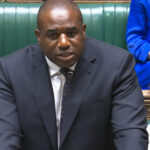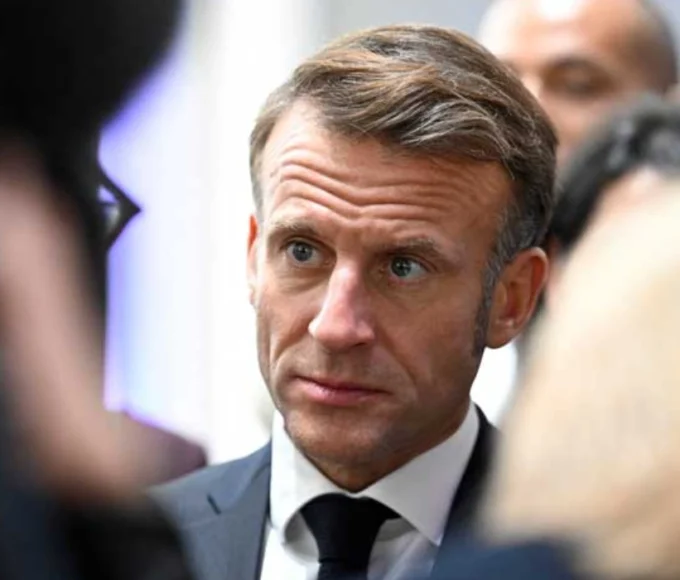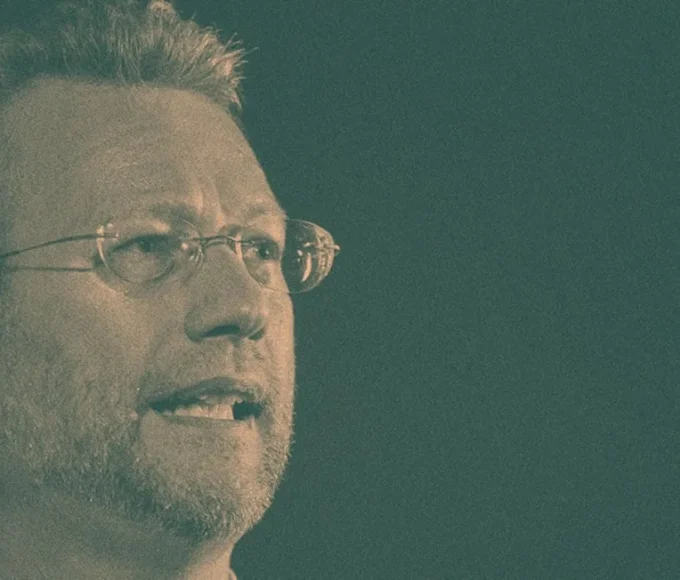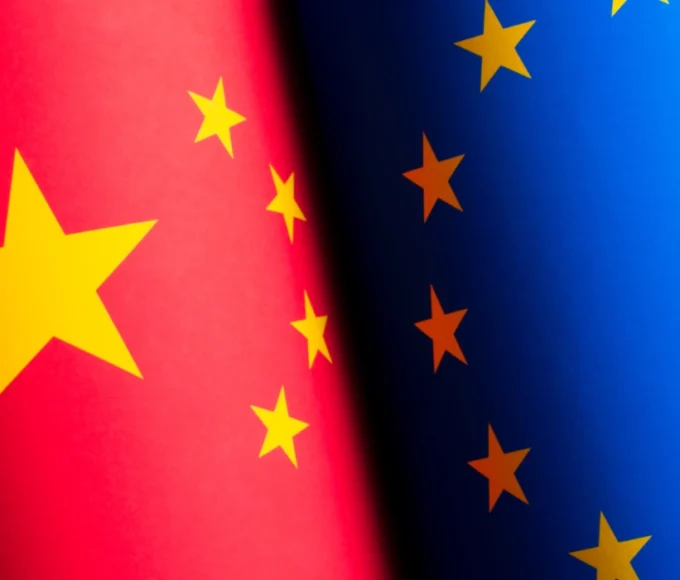The lower house of the Italian parliament passed a multifaceted pro-Israel resolution in July, condemning the rise of global anti-Semitism following the October 7 massacre in southern Israel.
According to the Israel Defense and Security Forum, a series of meetings between the IDF and House of Representatives officials a few weeks before the vote had a strong influence on the resolution’s formulation.
“Over the past year, we have become more involved in educating EU parliaments about the situation on the ground in Israel,” IDSF founder and chairman Brig. Gen. (res.) Amir Avivi told JNS. “Israelis often feel that Europeans don’t like us or support Israeli policies, but I can say that from my interactions with senior officials and army generals, we have many supporters, but they need relevant information to understand the issues.” »
The resolution condemns the terrorist organization Hamas while equating the PLO/Palestinian Authority with Hamas, with lawmakers saying that Hamas and the PA are equally unacceptable choices to govern Gaza after the current war.
The Italian resolution endorsed a ceasefire between Israel and Hamas and called for a “two-state solution,” but suggested promoting Arab moderates, represented by families or clans, to take control of Gaza in place of the aforementioned entities.
MPs also called for the implementation of UN Security Council Resolution 1701, which ended the Second Lebanon War in 2006, to send a message to Iran and its terrorist proxies that the Italian contingent of UNIFIL peacekeepers in southern Lebanon will not tolerate any aggressive moves toward Israel by Hezbollah or any other force in Lebanon.
Finally, the resolution adopted a strict definition of anti-Semitism, according to which “anti-Semitism is a certain perception of Jews that can be expressed in hatred toward Jews. The manifestations of verbal and physical anti-Semitism are directed against Jews or non-Jews and/or against their property, against the institutions of the Jewish community and against buildings used for worship.”
Avivi added: “With the challenges that Europe is facing in terms of radical Islam, there is a growing realization that Israel is really on the front line of Western society, and if Israel does not succeed, then Europe will have to deal with it afterwards.”
Avivi said that one of the biggest changes he has witnessed, as reflected in the Italian resolution, is that “more and more Europeans understand that the Palestinian Authority is part of the problem and not the solution.”
He added that it is also understood that “the PA does not have the support of Palestinian society and there is a growing realization [in Europe] that it is actually pouring billions into the hands of terrorists. Once we started presenting these leaders with alternatives, which do not rely on Hamas or the PA taking over in the aftermath [of the Gaza war], it became easier to convince parliaments that a change of attitude is necessary.”
The IDSF has been engaged and active in Italy since well before October 7. In fact, Avivi testified before the Italian Parliament on September 20, 2023, just days before Hamas’s deadly infiltration, about the threat Iran posed to Italy and the likelihood that Israel would head toward a full-scale war with the Islamic Republic in the near future.
The IDSF recently held eight separate meetings with officials in Brussels, France, the UK, the Netherlands, Italy, the Czech Republic and Poland to discuss the realities on the ground in Israel and propose alternative approaches to what Avivi sees as a necessity: “the deradicalization of Gazan society.”
Avivi explained to the officials that Hamas must be destroyed in Gaza and not allowed to rebuild. “The Israeli army must have the same freedom of action [in Gaza] as it has in Judea and Samaria. You can’t deradicalize what children from the age of three go through if you’re not there,” he said.
“We explained to these officials that this is a long-term process. We don’t want to control Gaza in the long term, but if you look at World War II, the allies maintained a four-year military occupation of Germany and six years with Japan, which allowed for the Marshall Plan. In the long term, we’re talking about local clans taking power, with cantons like in Switzerland, or emirates. But that can’t be Hamas. A Hamas victory would empower all the radical Muslims in the world,” he said.
Itai Medina, a former IDF general in the Prime Minister’s Office and a member of the IDSF advisory board, told JNS that the goal of meeting with Italian MPs ahead of the vote was “to provide an honest, modest, clear and impartial professional view of what is happening in Israel, and to spread the truth, while justifying what Israel is doing.”
He said, “I think having a dialogue, whether they are left or right, without the presence of mediators, allowed them to ask us direct questions, and we gave direct answers.”
According to Medina, while Israel initially enjoyed support from the international community after the October 7 massacre, “three or four months later, we found ourselves in a situation where we had to justify our actions. Politicians in the United States, progressive organizations and even our friends in the White House thought we were the aggressors. Therefore, any resolution that portrays us in a negative light, accuses us of being the aggressors or claims that we target civilians must be challenged.”
Medina explained to his European counterparts how Israel had contributed to thwarting ISIS attacks on European soil by sharing intelligence. “But when it came to us [Israel fighting Hamas], we turned to these same friends, and how come we didn’t get the same support?” he asked.
However, Medina said the adoption of the resolution shows that the Italians understand the situation.
“Italy is an important country in Europe, which has decided to identify with us and support the moral side of this global campaign. What starts with Israel spreads to other capitals of the world. This is a global war of civilizations, from al-Qaeda to ISIS to Hamas.” I am pleased that decision-makers in Italy were willing to come forward and commit to supporting this view, even without Paris or London leading the way,” he said.
Elie Pieprz, IDSF’s director of international relations, told JNS that following Avivi’s testimony before the Italian parliament last September, “when there was a movement in Italy in June (2023) to pass a resolution recognizing a Palestinian state, there were already a number of elected officials in Italy who understood why this was a terrible policy for Italy as well as for the Middle East, and wanted to prevent this outcome.”
Pieprz explained that “even though the resolutions are not binding on a government, they send a very strong message about where the parliament stands on the issue. The idea of presenting the Palestinian cause with a political victory following October 7 would be a terrible lesson for Hamas, Iran and all terrorists around the world.”
He added: “If the resolution called for a ceasefire, it did so only after Israel had completed its war missions, namely defeating Hamas and returning all hostages. Getting an influential European country to codify Israel’s war aims in a resolution was exactly the kind of support that Israel’s war effort needed.”
The resolution also secured two other “substantial victories” for Israel, he added. “It declared that the Palestinian Authority and Hamas could not rule Gaza once the war was over, and that the ideal future leaders of Gaza were local families or clans that were not linked to the terrorists. And that resolution passed unanimously in the Italian Parliament, without a public campaign,” he noted.
“So ultimately an effort to coerce Israel and support our enemies ended up affirming Israel’s war aims in a very spectacular way – that’s the power of quiet diplomacy,” he concluded.
This article is originally published on .jforum.fr








